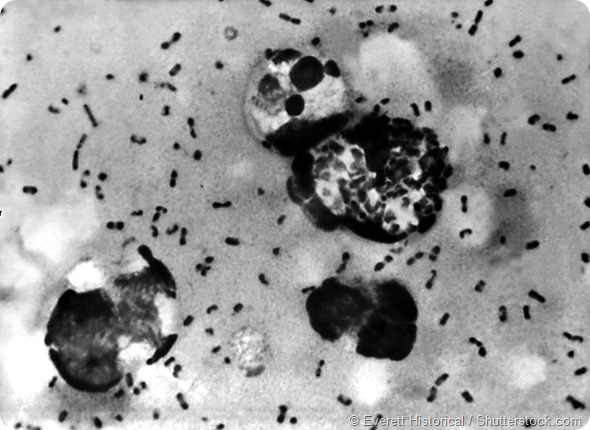A recent analysis of ancient DNA has revealed that the plague had been endemic in humans for at least 3000 years before the first global outbreak on record (the Plague of Justinian in 541 AD). Furthermore, the disease was not always transmitted by fleas, with mutation to the bubonic form only occurring around the start of the 1st millennium BC.

This new research indicates that human populations have been infected by the plague for more than twice as long as previously thought; first occurring during the early Bronze Age. Furthermore, it has been discovered that the early forms of plague would have been spread predominantly through human-to-human contact.
The early forms of plague lacked the genes needed for it to survive in fleas and to enable it to inflict the infamous swollen buboes of the Black Death. Genetic mutations in the plague-causing bacteria (Yersinia pestis) that gave rise to the flea-transmitted bubonic form of plague arose around 1-2 thousand years BC. It was this bubonic plague that killed half the population of Europe in the 14th century.

Professor Eske Willerslev of Cambridge University commented:
These results show that the ancient DNA has the potential not only to map our history and prehistory, but also discover how disease may have shaped it... Learning from the past may help us understand how future pathogens may arise and evolve."
The Y. pestis bacteria was found in DNA samples extracted from the teeth of seven human adults who lived during the Bronze Age. One of these plague victims died 5,783 years ago. It is thus conceivable that that plague may have been responsible for the great decline in population believed to have occurred three to four thousand years BC. The earliest evidence of plague prior to this new research was found in skeletal material dating back 1,500 years.
Study co-author Professor Robert Foley added:
The endemic nature of pneumonic plague was perhaps more adapted for an earlier Bronze Age population. Then, as Eurasian societies grew in complexity and trading routes continued to open up, maybe the conditions started to favor the more lethal form of plague."
Sources:
- University of Cambridge news 22 October 2015. Available at http://www.cam.ac.uk/research/news/plague-in-humans-twice-as-old-but-didnt-begin-as-flea-borne-ancient-dna-reveals#sthash.tj2RQPbk.dpuf
- Rasmussen S, et al. Early Divergent Strains of Yersinia pestis in Eurasia 5,000 Years Ago. Cell 2015; 163(3):571–582.